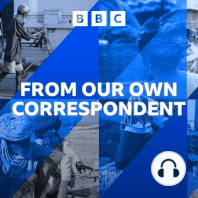28 min listen
Tunisia's Unfinished Business
ratings:
Length:
29 minutes
Released:
Aug 9, 2021
Format:
Podcast episode
Description
The political crisis which broke out in Tunisia last weekend is still simmering. Of all the countries in North Africa and the Middle East which toppled their dictators a decade ago, only Tunisia emerged as a full, multi-party democracy. Its free and fair elections, featuring candidates and groups of all ideological stripes, have been an exception in the wider region since then. But discontent has still mounted over the state of the economy, pandemic response and police tactics. Plenty of Tunisians don't necessarily see their country as a model for others - and President Kais Saied’s recent moves to freeze Parliament and remove the Prime Minister were welcomed by many. Rana Jawad explores why the situation looks rather different from Tunis.
Next week it will be a year since the chemical explosion that devastated the Lebanese capital, Beirut. It was one of the largest non-nuclear blasts in history – which killed more than 200 people and left more than 300,000 homeless. One of the worst-hit neighbourhoods was the close-knit district of Karantina, right next to the port. Survivors who’ve gone back to their rebuilt homes there hope that its special character can be preserved. But there are also some visionary, larger-scale proposals to redevelop the city – and as Tim Whewell found, the new plans might not leave room for everyone.
This November, Barbados is planning to celebrate its 55 years of independence and become a republic – meaning the Queen will no longer be its head of state. It’s seen as a turning point in the country’s history - and a chance for Barbados to move even further on from its colonial past. Other historic legacies may be harder to unpick, though. Barbados was Britain’s first slave-holding society abroad; and the economic impact, and the debts, of the slavery era are still much discussed across the Caribbean. Zeinab Badawi recently visited a surviving 17th century mansion in the north of this island, which is now a museum.
The UNHCR estimates that there are probably at least ten million individuals worldwide with no identity or nationality documents issued by any country. For them, the most basic challenges – registering a birth, getting childhood inoculation or exam certificates, applying for jobs or loans - can be insurmountable. But some countries are now deciding to make it easier to get legal status. In Kenya, hundreds of people from a Shona-speaking religious community with roots more than a thousand miles south, in Zimbabwe, were recently given a fresh chance. Vivienne Nunis saw several moments of pure joy at a ceremony to grant them citizenship.
There’s never been a summer Olympic Games quite like Tokyo's... and Covid restrictions also apply to the journalists who are meant to cover the event. Their task is even more important when the crowds of spectators aren’t around to witness the sporting triumphs at first hand – but this time they definitely can’t just wander around looking for athletes to speak to. Or soak up the atmosphere inside the Olympic village or on the streets of Tokyo. Alex Capstick has covered more sporting contests than he’d care to remember – but this time it’s different…
Producer: Polly Hope
Next week it will be a year since the chemical explosion that devastated the Lebanese capital, Beirut. It was one of the largest non-nuclear blasts in history – which killed more than 200 people and left more than 300,000 homeless. One of the worst-hit neighbourhoods was the close-knit district of Karantina, right next to the port. Survivors who’ve gone back to their rebuilt homes there hope that its special character can be preserved. But there are also some visionary, larger-scale proposals to redevelop the city – and as Tim Whewell found, the new plans might not leave room for everyone.
This November, Barbados is planning to celebrate its 55 years of independence and become a republic – meaning the Queen will no longer be its head of state. It’s seen as a turning point in the country’s history - and a chance for Barbados to move even further on from its colonial past. Other historic legacies may be harder to unpick, though. Barbados was Britain’s first slave-holding society abroad; and the economic impact, and the debts, of the slavery era are still much discussed across the Caribbean. Zeinab Badawi recently visited a surviving 17th century mansion in the north of this island, which is now a museum.
The UNHCR estimates that there are probably at least ten million individuals worldwide with no identity or nationality documents issued by any country. For them, the most basic challenges – registering a birth, getting childhood inoculation or exam certificates, applying for jobs or loans - can be insurmountable. But some countries are now deciding to make it easier to get legal status. In Kenya, hundreds of people from a Shona-speaking religious community with roots more than a thousand miles south, in Zimbabwe, were recently given a fresh chance. Vivienne Nunis saw several moments of pure joy at a ceremony to grant them citizenship.
There’s never been a summer Olympic Games quite like Tokyo's... and Covid restrictions also apply to the journalists who are meant to cover the event. Their task is even more important when the crowds of spectators aren’t around to witness the sporting triumphs at first hand – but this time they definitely can’t just wander around looking for athletes to speak to. Or soak up the atmosphere inside the Olympic village or on the streets of Tokyo. Alex Capstick has covered more sporting contests than he’d care to remember – but this time it’s different…
Producer: Polly Hope
Released:
Aug 9, 2021
Format:
Podcast episode
Titles in the series (100)
Jan 1, 2011: Nineteen correspondents from around the world join Kate Adie in this special New Year... by From Our Own Correspondent
